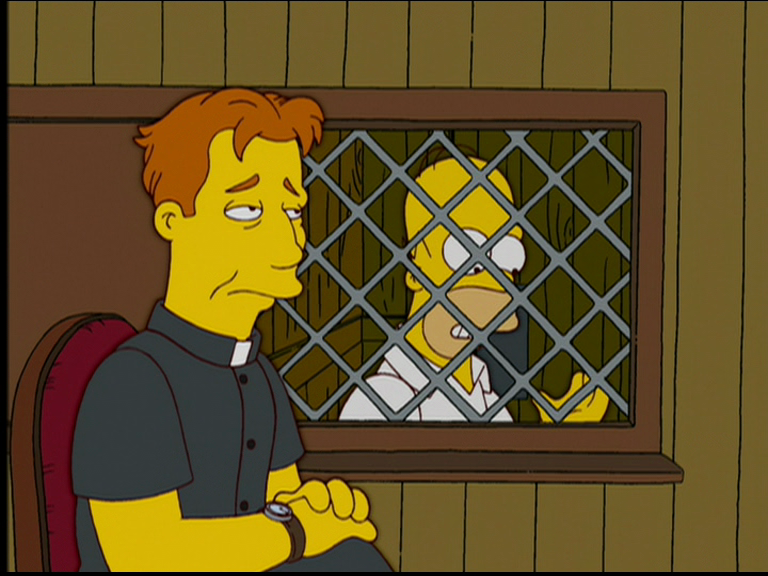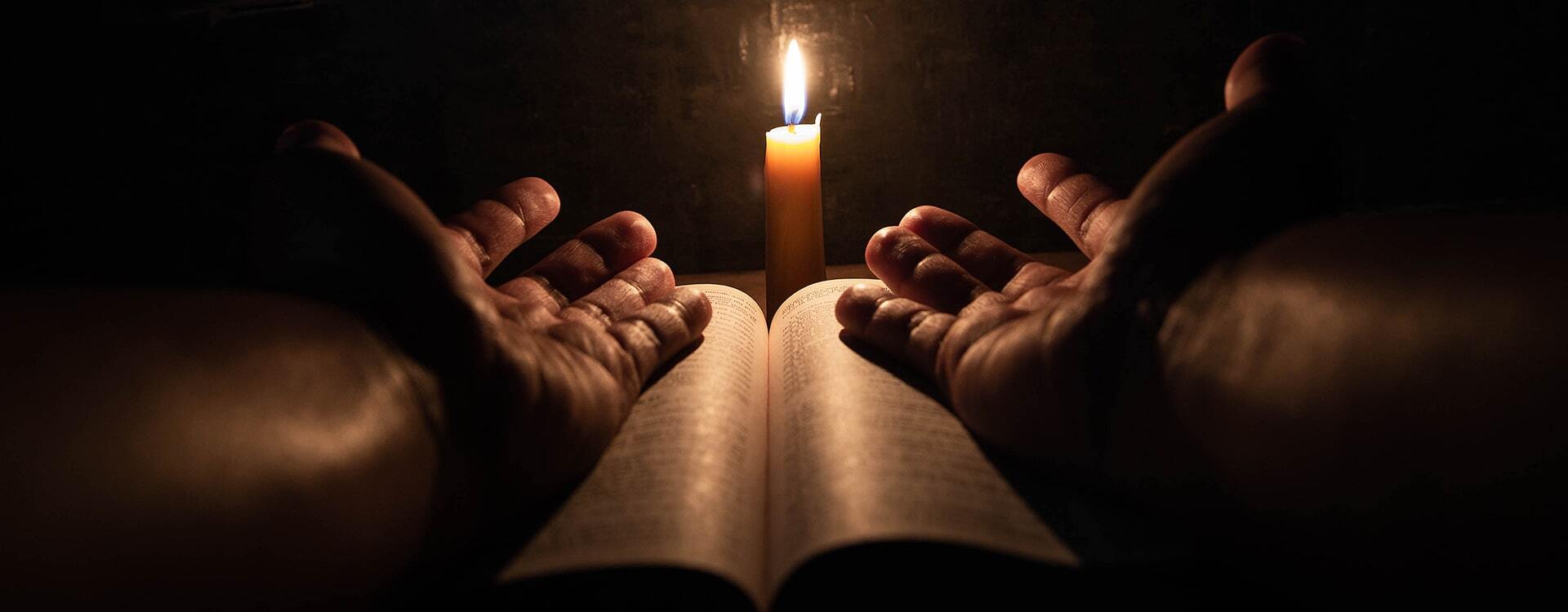ABOUT CONFESSION. EVERYTHING YOU DON’T DARE TO ASK

Here you can find the responses to questions about the Sacrament of Confession which you are interested to know but do not dare to ask. So, why and how often do we need to confess? The explanation is given by the Head of the Catechetical Commission of Kyiv-Galician Archbishopric of the UGCC, Fr. Andriy Stadnytskyy.
— What does Confession give to us?
— Confession is a part of our spiritual growth. When creating a man, God designed him good and full of love. We do not always correspond to this design. A human being has various passions and is induced to evil actions. And Confession is like coming to the Heavenly Doctor in order to receive spiritual healing.
Читай українською ПРО СПОВІДЬ. ВСЕ, ЩО НЕ НАВАЖУЄТЕСЯ ЗАПИТАТИ
— What is a sin: our thoughts or our deeds?
— We are used to talk about a sin as deeds. But actually these are already products (consequences) but seeds (causes) are inside of us. So we should consider not only our external offences but cure our heart. It is not possible to adjust grapes to the thorns and to say that it is grapes. The right stem should be grown in order to give good fruit. Therefore, by changing our inner world we will have different actions.
— Should the priest advise or instruct the penitent?
— In Confession the priest primarily listens to the confessant. But as a representative of God, who is our spiritual healer, in the Sacrament of Confession he also gives spiritual counsel. And what we call the penance, i. e., prayers, Holy Scripture readings, some good deeds, perceived by some people as punishment for sins, is the treatment of our spiritual diseases.
— Why are people sometimes afraid of confession?
— Let us take an example of Adam and Eve: after having sinned they hid from the Lord. The sin brings fear and shame to our heart. So, the confession is also a hard task since one needs to come and to confess one’s fault. It happens that such moral unwillingness to repent causes the fact that a person is unable to go to confession for years. I’ve also noticed that many people do not confess since they think: „Why am I to go if I will not improve anyway and it will be still a graver sin?“. They think so since repentance for sins is perceived in a very limited way, through the formula — „I promise to improve“. But actually even the confession manuals suggest to say, after listing one’s sins, that „I repent for sins and with God’s assistance I am resolute to improve“. We should understand that we cannot change only with our own strength and it will not happen in a moment. God is merciful and, when a man falls, He is willing to help him to rise.
— Sometimes people perceive the confession as a psychotherapy session for relief of conscience. What is it actually?
— Through the Sacraments, in particular through the Confession, Jesus touches our soul and heals it. After the Confession one really feels relieved but not from having said my say but from the fact that God has forgiven me and I realized it. The psychotherapy, however, doesn’t give it.
The best way is to ask forgiveness right after the fall, and not to accumulate everything for one time, — Fr. Andriy Stadnytskyy
— Is there a „recipe“ about how often one needs to confess?
— One should be always in good relations with God. The number of confessions depends on how we behave. By committing a grave sin (which is a conscious and voluntary violation of God’s Law in something important), we, as one can put it, in a unilateral way break our connection with God. Thus, when we have consciously committed a sin because it was convenient or profitable to us, we have to go to the Lord and ask for forgiveness. And the best way is to ask forgiveness right after the fall, and not to accumulate everything for one time. In general, it is advisable to come to Confession several times a year. After the Confession we often make some resolutions and want to change something in our life. Thus, there’s a good practice of confessing once a month: you have lived a month, analyzed your spiritual growth and outlined for yourself some new resolutions.
— In some churches priests do not confess through the Passion Week. Why is it so?
— Great Fast finishes before the Palm Sunday. It is followed by a special time — Passion Week. In many churches in this period the priests do not confess. Right, there’s no such a rule. But imagine if you were in the priests’ place. For the whole fast, especially at the end of it, they daily confess for hours and sometimes even from early morning to late in the evening. It is not easy for the priest to pay proper attention to everyone. They often want to help a person but often those people who confess rarely, come just to put in an appearance, since „everyone goes and I go“ or under pressure of one’s mother or wife. You understand that often such confessions do not bring any good, perhaps even more sin, and you feel exhausted by it, you yourself need God’s strength. During the Passion Week the priests pray a lot and restore their spiritual strength themselves.
— Is general confession equivalent to individual one?
— In the UGCC only individual confession is practiced. I cannot judge definitely but I have often heard that after the so called “general” confession, held by people in other Churches, they – how to put it correctly – didn’t feel completely forgiven. I would say it this way: regarding the Confession one should not search for “easy” ways, since it doesn’t often bring any good to the soul.
— Which sins cannot be absolved by the priest?
— There are no sins that cannot be absolved by the priest in God’s name. But there’s just one objection; the Catechism reminds us that „an important condition of the Confession is sincere repentance, the desire to change one’s life… If a person has no desire to repent, and refuses to amend the damage caused by sin, he or she thereby becomes incapable of receiving forgiveness of sins, even if they have come to Confession. In order to help such a person understand their lack of repentance and motivate them to true conversion, the priest can refuse him or her absolution“. Thus, if a person is not willing to take leave of a certain sin, then not the priest but the person is not ready for the absolution. We have to be resolute to reform because in different circumstances a priest cannot help. Besides, we should understand another important point: in Confession the priest cannot give partial remission of sins: we either want to live according to God’s law in love and good or decide to live our live according to our own commandments.
— Should one prepare to Confession and write a list of one’s sins?
— First of all, one should pray asking God to recollect all one’s faults and to give courage to repent for them. The list of sins written on a small sheet will help not to be at a loss in front of the priest. It is important, during Confession, not to conceal any sin. If you forgot to say something (not deliberately secreted but forgot!), you need not immediately come back to another confession but say about this sin the next time. Sometimes the priest can ask questions in order to encourage the penitent to realize if he or she had not omitted any sin. Confession, however, is not an exam in front of the priest but cure.
Interviewed by Natalia Pavlyshyn
Illustration: from the cartoon “The Simpsons”
ПІДТРИМАЙТЕ ДИВЕН СВІТ
проєкту
ЧИТАЙТЕ ТАКОЖ











